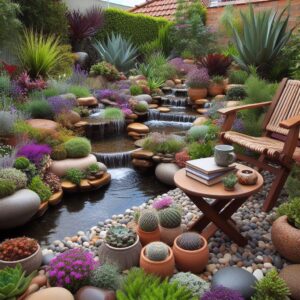Composting is a sustainable and rewarding practice that allows you to transform kitchen waste into nutrient-rich soil for your garden. In this article, we’ll explore the fundamentals of composting and guide you through the steps to create your own “garden gold.”
1. Understanding Composting:
Composting is a natural process where organic matter decomposes into a rich, dark substance known as compost. This nutrient-dense material enhances soil structure and fertility, promoting healthier plant growth.
2. Selecting the Right Bin:
Start by choosing a suitable composting bin for your kitchen waste. Options range from traditional compost bins to more advanced tumblers. Ensure proper aeration and drainage to foster the composting process.
3. Essential Composting Ingredients:
Achieving the perfect compost blend requires a mix of “green” and “brown” materials. “Green” materials include kitchen scraps like fruit peels and vegetable trimmings, while “brown” materials consist of dry leaves, straw, or shredded newspaper.
4. Balancing the Ratio:
Maintain a balanced ratio of green to brown materials, aiming for roughly 1:2. This equilibrium provides the necessary carbon and nitrogen for effective decomposition.
5. The Composting Process:
Composting is a gradual process, so patience is key. Turn or rotate your compost regularly to aerate it and speed up decomposition. Keep the moisture level consistent, resembling a damp sponge.
6. What to Include in Your Compost:
Aside from kitchen scraps, consider adding eggshells for calcium, coffee grounds for nitrogen, and small amounts of yard waste. Avoid meat, dairy, and oily items as they may attract pests.
7. Troubleshooting Common Issues:
If your compost smells bad, it might be too wet or lack proper aeration. Adjust the balance of green and brown materials accordingly. If the compost isn’t heating up, add more green materials or turn it more frequently.
8. Harvesting Your Garden Gold:
Once your compost has transformed into a dark, crumbly texture and has a pleasant, earthy scent, it’s ready to be used. Spread it around your garden to enhance soil fertility and structure.
9. Benefits of Composting:
Composting not only reduces kitchen waste but also enriches your soil, promotes healthier plants, and contributes to a more sustainable lifestyle. It’s a simple yet impactful way to make a positive environmental impact.
Conclusion:
Embark on your composting journey and witness the transformation of kitchen waste into nutrient-rich garden gold. By following these composting basics and incorporating them into your routine, you’ll contribute to a healthier garden and a more sustainable lifestyle. Happy composting!



